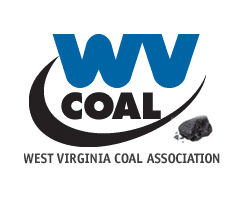Pro-Coal Industry Bills on Verge of Passing in WV Senate

By Mike Tony
March 13, 2023 - The West Virginia Senate is on the verge of approving more bills designed to aid the state’s declining coal industry days after its coal magnate governor signed into law a bill crafted with the same aim.
Scheduled for passage in the Senate Friday are bills that would require state officials to identify economically viable sites for coal electric generation projects, an increasingly uneconomic enterprise, expand reliance on West Virginia coal and develop an educational program to support the state’s coal industry.
Friday is the next-to-last day of the 2023 regular legislative session.
Approved by the House of Delegates in a 93-3 vote last week, House Bill 3482 would require the Department of Economic Development to designate sites viable for coal electric generation projects, finding that such projects “have been undermined by existing regulatory requirements and related time delays.”
The last coal-fired power plant 100 megawatts or greater built in the United States as of November came online in 2013, according to the federal Energy Information Administration.
Approved by the House in an 86-2 vote last week, HB 3303 would reboot an economic development office to coordinate federal grant expenses, expand coal assets and come up with an educational program to promote HB 3303 would expand the powers of the Coalfield Community Development Office with the aim of giving West Virginia’s shrinking coal industry a boost.
Gov. Jim Justice on Tuesday signed into law SB 609, which would require Public Energy Authority approval for any existing utility or non-utility plant fueled by coal, oil or natural gas to be decommissioned or deconstructed.
HB 3303 would “offer assistance” to expand “continued operation and reliance on West Virginia coal” for coal mine operations, coal-fired electric utilities and other coal assets in West Virginia.
The Coalfield Community Development Office would “develop an educational program and policy materials” to “educate the public” about what the legislation says are “economic and societalbenefits provided by the coal industry,” including coal-fired electric generation.
State code established the Coalfield Community Development Office under the Department of Commerce, allowing the office secretary to appoint a chief to administer the office.
The Coalfield Community Development Office may prepare master land use plans, per state code, and is required to prepare annual reports describing economic development initiatives and prospects for further development.
But in 2021, the Department of Commerce and the then-state Development Office, a forerunner of the state Economic Development Office, could not identify any such reports dating back to 2010 in response to a Gazette-Mail Freedom of Information Act request. The state could only identify reports filed by the Office of Energy on the Office of Coalfield Community Development’s behalf from 2010 through 2015.
West Virginia Coal Association Chris Hamilton in January spoke in support of SB 157, legislation in the Senate with the same provisions, and said the Office of Coalfield Community Development has “all but become dormant” in the past decade. He said SB 157 would not only revitalize the office, but make it more functional.
Under HB 3303, the governor would appoint and set the salary of a director for the office, who would be responsible for hiring assistants and clerical staff as needed.
HB 3303 would cost the state an estimated $300,000 per year, according to a fiscal note submitted by the Department of Commerce.
The Senate Finance Committee revised HB 3303 to terminate the Office of Coalfield Community Development on June 30, 2032.
HB 3482 was introduced after a natural gas counterpart bill now awaiting Justice’s signature after passage through the Legislature, SB 188, which would require the Department of Economic Development to designate sites viable for natural gas electric generation projects.
Coal comprised 91% of West Virginia’s electricity generation in 2021, far more than any other state.
West Virginia electric bills have ballooned as the state has clung to coal. State ratepayers faced a 90% climb in average residential electricity retail price from 2005 to 2020, according to U.S. Energy Information Administration data. Only Michigan had a greater increase by percentage.
Another bill scheduled for a vote on passage in the Senate Friday, HB 3130, would create a public corporation to focus on energy development in the state’s coalfields.
Approved by a 70-23 vote last month, HB 3130 would create the West Virginia Coalfields Energy Research and Economic Development Authority.
The new authority would consist of four governor appointees and the Department of Economic Development secretary, who would chair the new public corporation.
The bill’s stated aim is to create jobs and promote opportunities for “energy development, energy storage, and manufacturing” in the state’s coalfields.
The legislation offers a loose definition of coalfields and would give wide latitude to the governor in selecting appointees to the authority.
HB 3130 defines “West Virginia coalfields” as any county that has economically benefited from the coal mining industry and has otherwise been or will be significantly affected by the industry.
HB 3130 requires only that all five authority members be West Virginia residents.
The authority would have the power and duty to apply for and award grants, enter into secured loan agreements and invest funds to support and develop energy projects, energy storage and manufacturing in the West Virginia coalfields.
HB 3133, which would allow coal companies to claim tax credits to reduce their severance tax liability at an estimated cost to the state of $70 million per year, stalled in the Senate Finance Committee after the House passed it in an 89-7 vote last week.

